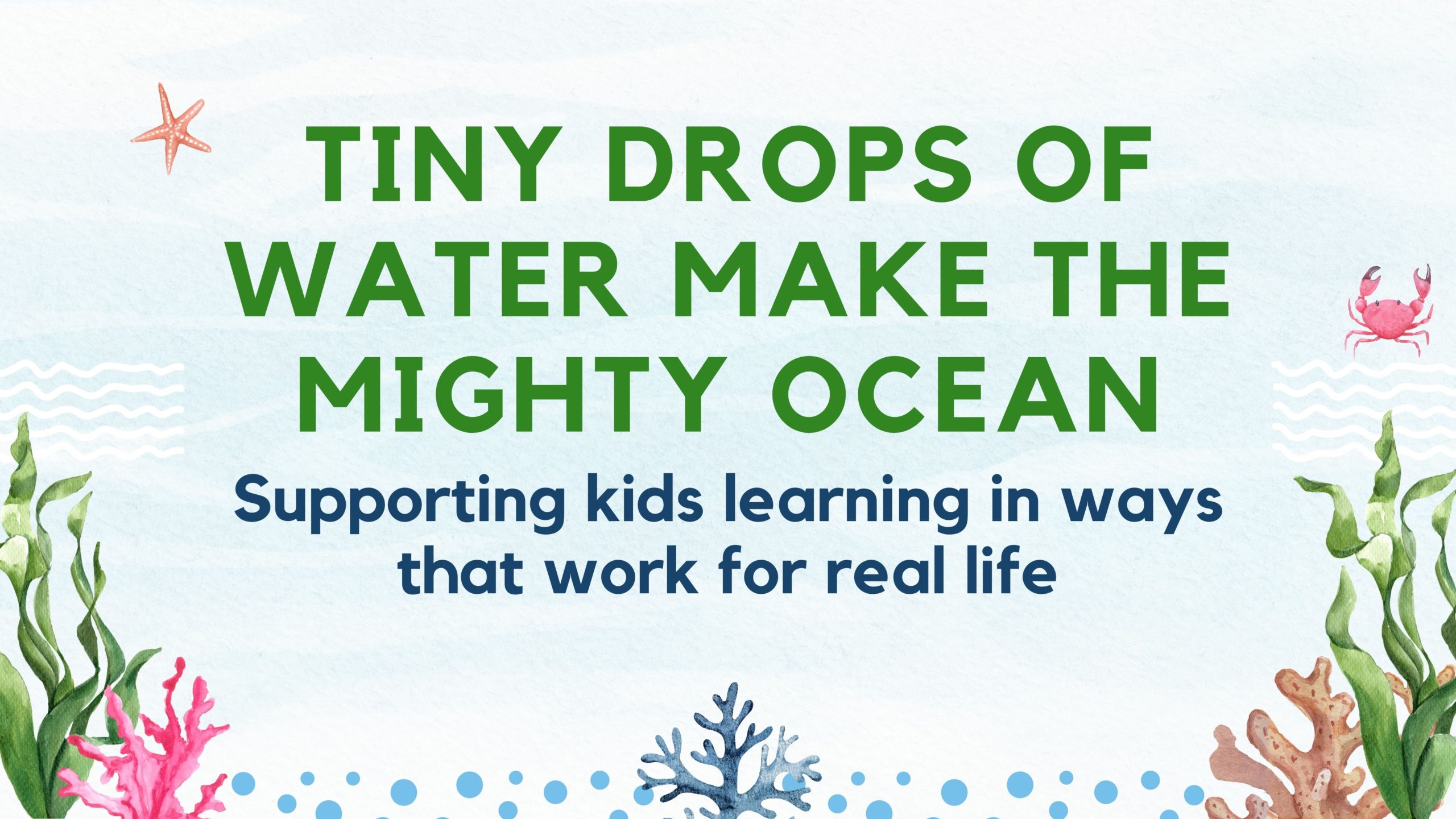As a parent in the 21st century, the sheer number of options we have makes it nearly impossible to be satisfied with whatever choice you make. When it comes to supporting our kids’ learning, FOMO is real! There are respectable resources for every age for math, science, robotics, social and emotional learning, sports, crafts, coding and multilingualism – some even for before a baby is born! Between work, family, friends, keeping said kids alive, happy, and healthy, just the thought of doing justice to the resources in our age of free knowledge is exhausting. But you best believe there are some life hacks we want to share with you.
Supporting Kids Learning in Ways that Work for Real Life
“Little drops of water, Little grains of sand, Make the mighty ocean, And the pleasant land.” Those words are from the poem Little Things by Julia Carney. Beautiful poetry aside, the point is for you to take a moment and let it sit with you that the impossibly huge ocean is indeed made up of tiny drops of water. It doesn’t have to be a huge pain, exhausting, frustrating and draining to achieve a goal to support your kids learning at home. Here are some tips that make it compatible with the demands of real life.
A Little Bit Each Day Adds up To a Lot
It may surprise you how little time per day kids need to master new skills if they are doing it consistently. Trying to help your 4th grader with division? You don’t need to set yourself up for 30-minute battle periods. 3 – 5 minutes a day can often be productive and everyone is spared tears and aggravation. The point is to get repetition that gives the child confidence, and that repetition may come over time. We are coming at you with some real-life mom experience and what we’ve heard is often what is needed is way less than you think. Just do the little you can
Make the Time Supporting Your Kids Learning Into Time for You Too
This means that when you’re physically present, pick things that you like too. For instance, if you LOVE reading, then a disproportionate amount of the time you spend should be on books. If you are doing things that nourish you, you are more likely to find time for it amidst your long list of to-dos. The kids will feel your energy and passion and will benefit from it.
Let Technology Help You Help Your Kids Learn
There are going to be some things that you just can’t do whether because you despise it (see above), you don’t know it, you have other commitments or you’ve learnt to keep peace in the home, it’s best not to. Lucky you, you live in the 21st century and whatever it is, there is a free resource for that. You don’t need to know the latest division methods, and you don’t need to be physically present to ‘walk your child through division’. Schedule division videos for your child in Aneta. Ask other parents who have curated Anetapacks to share them with you so that you don’t even have to curate. There are many ills of technology, but when it comes to supporting learning, it is hard to do anything but gush.
Do What You Can and Celebrate the Small Wins
So you can’t get your son to sit and do math worksheets. If they will watch a video by a zany math teacher or play a video game that teaches them math principles, do that and celebrate it. This is not about debating whether the math worksheet is more effective than the other tools. It is about “loss minimization”. Or if we are to continue the poetic theme, take half a loaf of bread.
Go Where the Child’s Interest Is
Sometimes because of our school systems and testing, we forget that knowledge doesn’t have to have order. Introduce kids to things that spark their curiosity wherever they show interest. A mom once told how her 4-year-old took an interest in fluid dynamics! ‘Do you know that ketchup is a non-Newtonian fluid,’ says the 4-year-old! Who knows where the child heard this or why it stuck with them. The child obviously didn’t grasp all the fundamentals of Newtonian fluids (mom didn’t grasp it either) but fascinated mom and daughter together learnt more.
The internet has made what was impossible every day. It is like we have all the teachers, schools and universities in the world at our fingertips. Don’t get FOMO. Make use of it.


